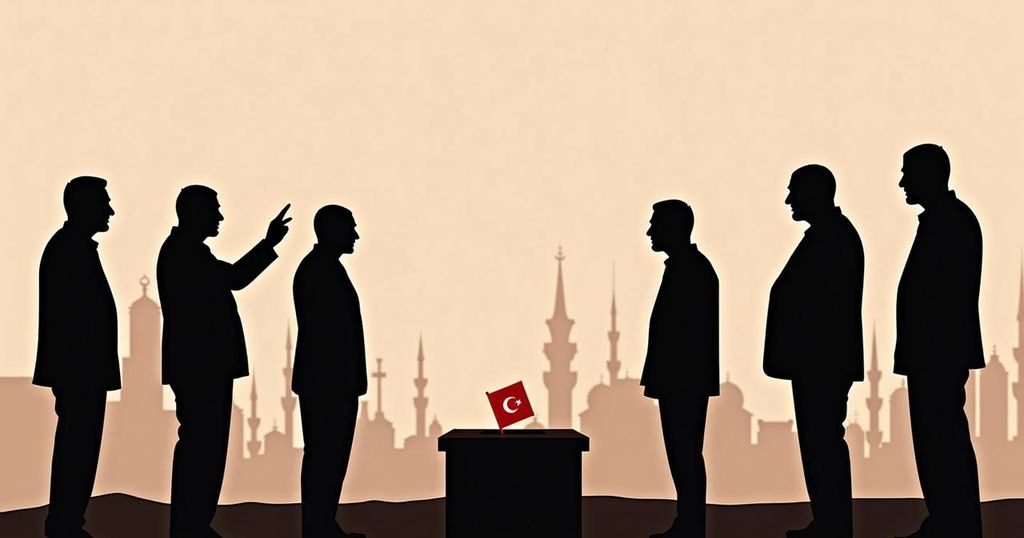Tunisia Prepares for Presidential Election Amidst Political Turmoil
Tunisia is preparing for its third presidential election since the Arab Spring, with President Kais Saied seeking re-election amid a fraught political atmosphere. Several of his opponents remain imprisoned or excluded, raising concerns about the election’s legitimacy. The election offers a chance to gauge public sentiment regarding Saied’s controversial governance after his consolidation of power in 2021. With significant economic challenges ongoing, the outcomes of this election could significantly impact the future of Tunisia’s democracy and governance.
Tunisia is set to hold its third presidential election on Sunday, marking five years since President Kais Saied first took office amid popular protests against the political establishment. Since the Arab Spring, which resulted in the ousting of longtime president Zine El Abidine Ben Ali, Tunisia has experienced considerable political upheaval. President Saied is running for re-election against limited opposition, as many of his major rivals have been imprisoned or barred from the ballot. Among the three candidates approved to run are Saied, Zouhair Maghzaoui, a seasoned politician critical of Saied’s policies, and Ayachi Zammel, a businessman with a controversial background, including recent prison sentences on fraud convictions. The electoral process has raised significant concerns regarding its fairness, following Saied’s controversial actions in July 2021 when he dismissed parliament and rewrote the constitution to consolidate his power. Observers have noted that the previous two elections were praised for their adherence to democratic norms, yet the current climate—marked by increased arrests of political dissenters and calls for a boycott of the election by opposition groups—raises questions about the legitimacy of this election cycle. As Tunisia grapples with economic challenges, including rampant unemployment and reliance on international aid, the political landscape remains fraught with tension. Saied, a political outsider who benefited from widespread dissatisfaction with the established political order, now faces scrutiny over his governance and its implications for the future of democracy in the country. The outcome of this election could serve as a barometer for the public’s perception of Saied’s leadership and Tunisia’s trajectory following the Arab Spring.
Since the Arab Spring in 2011, which led to the overthrow of President Zine El Abidine Ben Ali, Tunisia emerged as a beacon of democratic progress in a region largely characterized by authoritarian structures. The Tunisian model included a new democratic constitution and active civil society participation. However, political instability, economic hardship, and social unrest have plagued the country. Kais Saied won the presidency in 2019 with promises of reform and empowerment of local governance, but since his consolidation of power in 2021, criticisms have arisen regarding the erosion of democratic institutions and human rights violations in the context of political repression and state security laws.
In conclusion, the upcoming presidential election in Tunisia represents a pivotal moment for the nation’s democracy, which post-Arab Spring was initially celebrated as a success story. With President Saied facing little opposition, the election could reaffirm his leadership or provoke further discontent among segments of the populace who seek greater political plurality and economic improvement. The global community watches closely, as the election results will undoubtedly influence Tunisia’s future and its standing within the regional political landscape.
Original Source: apnews.com




Post Comment